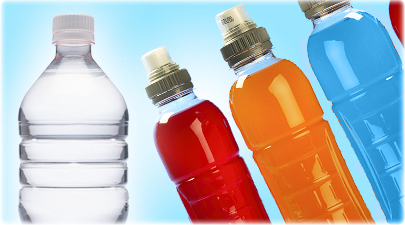Water Is The Best Way to Hydrate
August is here and along with that comes going back to school and preparation for
fall sports and events, including two-a-day practices. Combine that with high temperatures
and that can form a deadly scenario if not handled properly.
TEXARKANA, Ark. –

August is here and along with that comes going back to school and preparation for fall sports and events, including two-a-day practices. Combine practice twice a day with high temperatures, sweat and heat indexes above the 100 degree mark, and that can form a deadly scenario if not handled properly.
Water is the most important thing you can have with you. It is calorie free, doesn’t cost anything (if you fill your own bottle or thermos) and does wonders for performance. Unfortunately, the most common beverage you will likely find at these practices is sports drinks, not water.
What could be wrong with sports drinks? They replace electrolytes, right? Electrolytes are salts and minerals that conduct electricity in the body. If our body doesn’t have enough electrolytes, it can affect our muscles, causing them to not contract correctly. That includes our leg muscles, arm muscles, or even heart muscle. Our body does a great job of balancing electrolytes by keeping them when we need them and disposing of them when we do not. When we sweat a lot, we lose additional electrolytes and it becomes very important to replace them. But does drinking sports drinks exclusively do us any good?
Why should you not drink sports drinks exclusively? They generally have a lot of ingredients that claim to give you more energy, and they claim that they prevent dehydration, but do they really? If you are properly fueling your body and eating a well-balanced sports diet, you won’t need the pick me up the sports drink claims to give you.
If you are going to hydrate with sports drinks, be smart in your choice. You should not drink sports drinks exclusively. Hydrate with water first, it should be your first drink of choice. If you do choose to have a sport drink, have one and hydrate the rest with water. Check the ingredient list on the bottle and the serving size. There should be no more than 6-7 carbohydrates per serving. For every four grams of sugar, you are consuming 1 teaspoon of sugar. Let’s say you are consuming a sports drink that contains 3 servings per bottle, with 16 grams of sugar. Seems simple enough until you realize you have to multiply that 16 grams of sugar times three. You now are consuming 48 grams of sugar in each bottle. To complicate that even more, we know that there is one teaspoon of sugar in four grams of sugar. So now we will divide our 48 grams of sugar by 4, since we know there are 4 grams of sugar equals a teaspoon and we have 12 teaspoons of sugar in one bottle of sports drink. So basically, if you were to measure out the 12 teaspoons of sugar, you would have one fourth cup of sugar. Is that really what you want to put in your body after strenuous exercise or practice?
Water is essential for our bodies to function properly, and a great moisturizer for our skin and body. Our body is said to be about 60 to 70 percent water. Our muscles, lungs, brain, and blood all contain water. We need water to regulate our body temperature and to carry nutrients to all our organs. It also transports oxygen to our cells, removes waste, and protects our joints and organs.
Don’t wait until you feel thirsty to drink something. If you are thirsty, you may have already begun the dehydration process. Sometimes the brain doesn’t get the signal that you are thirsty.
Make sure that water is handy at home as well as practice. Fill a container with tap water and put it in the fridge for the next time someone is looking for an ice-cold thirst quencher.
Although it is extremely rare in healthy adults, it is possible to drink too much water. If you are concerned about drinking too much or too little water, let your doctor help you determine the amount that is best for you.
If you have questions, contact me at the University of Arkansas System Division of Agriculture, Miller County Extension office.
By Carla Haley-Hadley
County Extension Agent - FCS
The Cooperative Extension Service
U of A System Division of Agriculture
Media Contact: Carla Haley-Hadley
County Extension Agent - FCS
U of A Division of Agriculture
Cooperative Extension Service
400 Laurel Street, Suite 215 Texarkana AR 71854
(870) 779-3609
chaley@uada.edu
The Arkansas Cooperative Extension Service is an equal opportunity institution. If
you require a reasonable accommodation to participate or need materials in another
format, please contact your County Extension office (or other appropriate office)
as soon as possible. Dial 711 for Arkansas Relay.
Pursuant to 7 CFR § 15.3, the University of Arkansas System Division of Agriculture
offers all its Extension and Research programs and services (including employment)
without regard to race, color, sex, national origin, religion, age, disability, marital
or veteran status, genetic information, sexual preference, pregnancy or any other
legally protected status, and is an equal opportunity institution.